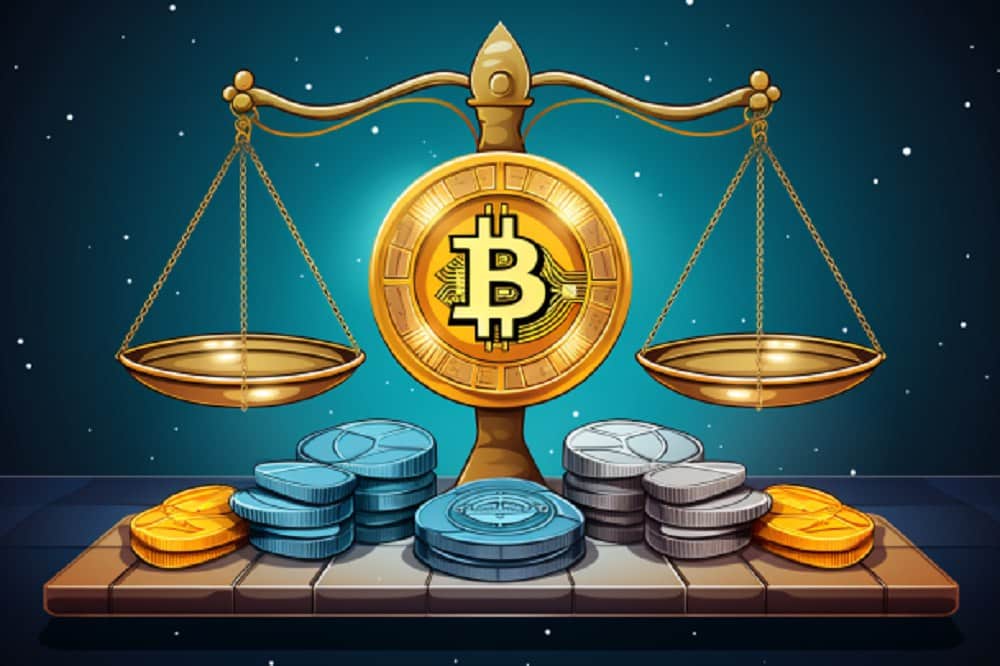What Is Bitcoin Mining?

The process of creating new bitcoin tokens validating and recording new transaction orders on the Bitcoin network is called Bitcoin Mining. It involves the use of heavy computational power by miners to solve sophisticated cryptographic puzzles known as proof-of-work, which are necessary for validating transactions on the Bitcoin network.
Due to its decentralized nature, bitcoin mining allows any entity, both private and public, across the world with the suitable capacity to take part. It rewards them with fractions of the new Bitcoin block created as well as transaction fees paid by users. Beyond these, bitcoin mining has other benefits and risks, as discussed below.
Benefits Of Bitcoin Mining
Bitcoin has multiple benefits it offers both miners and the crypto community in general. Some of the key importance of BTC mining are listed below:
- Creation of New Bitcoins: new Bitcoin tokens are created and released into circulation through mining processes. In exchange for their work, miners are incentivized with fractions of minted bitcoins to ensure an organized and well-defined cryptocurrency issuance. The mining process helps to maintain Bitcoin’s rarity, reducing its production rate gradually.
- Decentralization: due to its decentralized nature, bitcoin mining power is distributed across the globe, ensuring that bitcoin can be mined in any region in the world. In addition, this concept prevents a central authority from controlling the network.
- Validates Transaction: on the Bitcoin network, transaction verification and execution are carried out by miners. They solve complex cryptographic puzzles and add new blocks of transactions to the network in order to preserve its operations. Furthermore, mining protects the ledger’s integrity, preventing manipulation or fraudulent activities on the platform.
- Rewards miners: individuals and organizations are incentivized to participate in the operation and maintenance of the Bitcoin network. Miners are rewarded with newly minted BTC tokens. In addition, a fraction of transaction fees that users pay to execute their orders also go to the m8ners as income. These rewards urge them to dedicate computational power and resources towards maintaining the platform.
- Economic Opportunities: businesses and individuals involved in developing mining hardware and pool operations have gained a lot of business opportunities through their engagements in BTC mining. In addition, the evolvement of sophisticated mining gadgets over time has contributed massively to the technology sector of the crypto industry.
- Solid CyberSecurity: The Bitcoin network uses a proof-of-work consensus mechanism for its mining procedures. This protocol is time-consuming and requires a lot of computation to alter, hence making it challenging for malicious actors to manipulate the blockchain’s history or perform double-spending hacks. Also, the cumulative computational strength of the miners secures the platform, preventing threats and ensuring trust among users.
Risks Involved In Bitcoin Mining
Aside from its lucrative benefits, Bitcoin mining poses some risks, which some would be discussed below:
- Energy Intensive: Mining Bitcoin is an activity that requires high energy consumption to power the cryptographic computers needed to solve complex mathematics puzzles encountered while executing users’ orders. The mammoth energy requirement often causes concerns, primarily when not powered by renewable energies. This has led many countries to sanction BTC mining activities within their territory.
- Capital-Intensive: setting up a mining node for BTC mining is quite expensive. Also, it requires hardware known as the Application-Specific Integrated Circuits to function effectively, and these devices are costly to buy and manage. In addition, securing enough energy resources to power the nodes is also expensive.
- Mining Difficulty & Congestion: the Bitcoin network typically validates and creates a new BTC block every 10 minutes. However, as the number of miners increases, so does the mining difficulty, making it more challenging to solve puzzles, which reduces mining rewards. Also, during high-demand periods, the network becomes congested due to limited block capacity.
Conclusion
Many individuals and organizations alike participate actively in Bitcoin mining activities for the incentives it offers and other benefits. However, the heavy participation rate does not deny the fact that the activity poses some risks. Understanding how to balance risk management alongside environmental and legal awareness helps to improve mining activities.
DISCLAIMER: It's crucial we tell you that the content on this page is not meant to serve as, nor should it be construed as, advice in legal, tax, investment, financial, or any other professional context. You should only invest an amount that you are prepared to lose, and it's advisable to consult with an independent financial expert if you're uncertain. To obtain more information, we recommend examining the terms of service and exploring the assistance and support resources provided by the issuing or advertising entity. Our platform is dedicated to delivering accurate and unbiased reporting, but it's important to note that market circumstances can change rapidly. Also, be informed that some, though not all, articles on our site may be sponsored or paid content.













